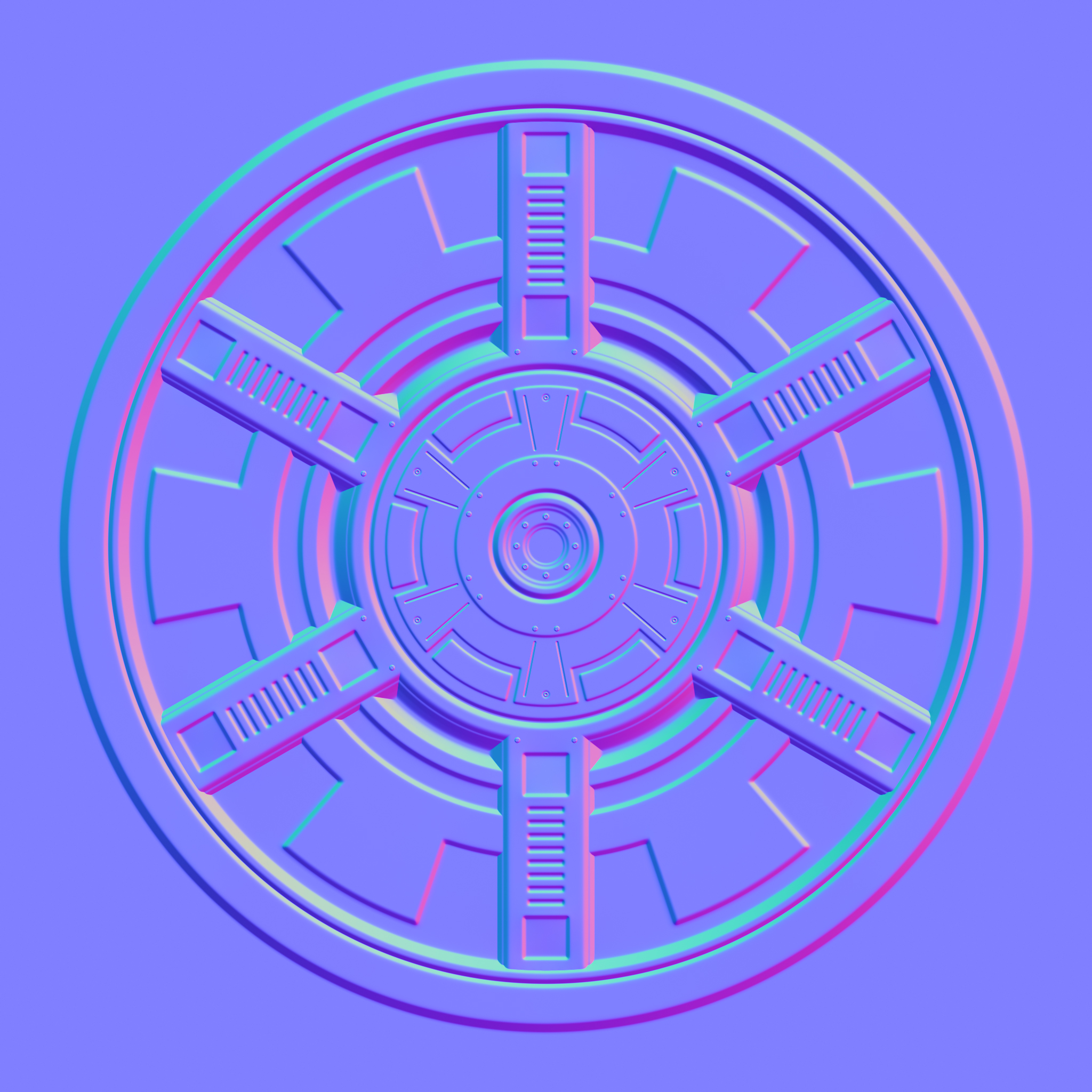Knaldtech Start
User Tools
Sidebar
This is an old revision of the document!
Table of Contents
Normal Maps
The Normal maps within Knald are generated on the fly from the Height maps provided by The Integrator. They are adjustable in real time in terms of intensity via the Bump Scale slider.
You can also create Normal maps quickly and efficiently from photographs, via pre-rendered Height & Knald's Color To Normals functionality or our world class baker.
Please see the Color To Normals & The Baker pages for more information.

The Normal Maps Group's Settings
Flip Green: Here you can change the axis in the dropdown to match the Normal/Derivative maps for your engine or application as required. By default Knald is set to X+Y+Z+, so if you are using a Normal or Derivative map that differs from this configuration, you will need to change this setting. To change this setting check the Flip Green check box to save your choice.
View OS Normal: Enables the viewing of the Object Space Normal map in the Normal tab rather than the default Tangent Space Normal map.
Bump Scale: The global strength of the processed Normal and Derivative maps.
High Poly Bump/Detail Normal
High poly bump/detail maps allow the user to apply additional detail to the High poly meshes without having to sculpt or model that detail prior to importing the meshes into Knald. This can be useful if you are limited in the amount of modelling/sculpting that you can have due to hardware or time considerations, but you have not yet reached the level of detail you require for the asset in question.
This feature can also be used to transfer Object & Tangent space normal maps from one layout to another in a similar way to Texture Transfer, or to convert between Object & Tangent space while retaining the same UV layout between meshes (by assigning the Low poly mesh to both the high and low slots found within the Bake Meshes group).
High poly bump requires the High poly meshes to have UVs & any changes made to settings within the subgroup require a rebake to take effect if selected post bake.
Normal Map: The path to the source Normal map texture.
Tilable: A toggle for tilable textures for the source normal map. Checked is tilable, unchecked is non-tilable.
OS Normal A toggle between Object & Tangent space for the source normal map. Checked is Object space, unchecked is Tangent space.
Detail Bump Scale: The strength of the High Poly Bump/Detail map.
Detail UV Tiling: Here you can change the tiling frequency of the High Poly Bump/Detail map in the U & V directions. Changing the value will increase or decrease the number of times that the texture is tilled along the surface of the object.
Normal Map Types
Knald can bake both Tangent Space and Object Space Normal map data, and does so simultaneously when baking is initiated. While both maps can be used for real-time rendering, Tangent Space is by far the most commonly used during runtime with Object Space maps tending to be used more for texturing purposes (channel data for selection masks etc.) than when they were first introduced.
Tangent Basis
Knald uses MikkTSpace by Morten S. Mikkelsen, which is available for free, from http://wiki.blender.org/index.php/Dev:Shading/Tangent_Space_Normal_Maps & the xNormal SDK.
It also calculates the bitangent on the fly by default due to the fact that it is more efficient on modern hardware (sending data from vertex to pixel shader is more costly than executing a minor calculation in the pixel shader), which is consistent with Unreal Engine 41) & Blender.
If required, Knald can also use the embedded Tangent Space held within an imported FBX file by checking the Use FBX Tangent Space option found within The Preferences.

